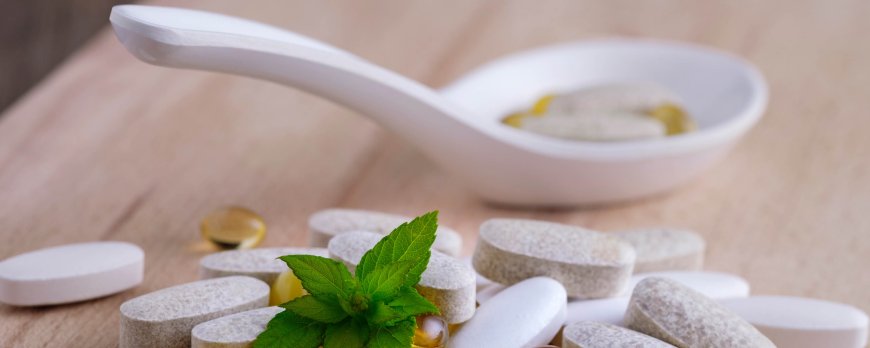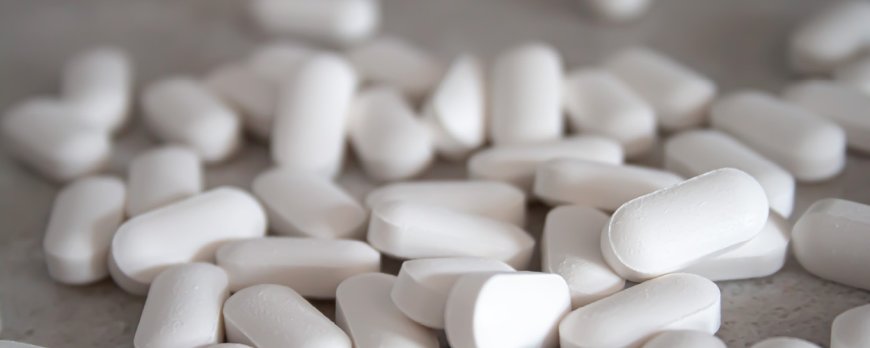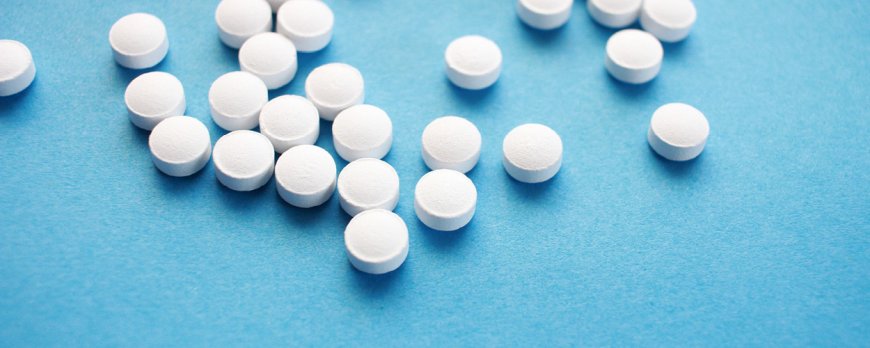Do Prebiotics and Probiotics Help with Bloating?
Uncover the role of prebiotics and probiotics in digestive health. 'Do prebiotics and probiotics help with bloating?' Find out here.

Do Prebiotics and Probiotics Help with Bloating?
Bloating is a common digestive issue that many people experience, but can prebiotics and probiotics offer relief? Probiotics, like Bifidobacterium lactis Bi-07 and Lactobacillus acidophilus NCFM, have shown promising results in reducing symptoms of functional bowel disorders, such as irritable bowel syndrome (IBS). They may also help increase bowel movement frequency for those with functional constipation, providing relief from bloating and discomfort. However, it is important to note that probiotics may not provide immediate relief and need to be taken consistently over time.
Alongside probiotics, incorporating additional remedies and lifestyle changes can help minimize bloating. Sipping herbal teas, practicing abdominal massage, and gradually adding high-fiber foods to your diet are all natural methods that may prove beneficial. If bloating persists regularly or is accompanied by other symptoms, it is advisable to consult a doctor, especially if you have small intestinal bacterial overgrowth (SIBO) or short bowel syndrome, as probiotics may not be suitable for these conditions.
Key Takeaways:
- Probiotics, such as Bifidobacterium lactis Bi-07 and Lactobacillus acidophilus NCFM, have shown potential in reducing bloating associated with functional bowel disorders.
- Probiotics may help increase bowel movement frequency, providing relief from bloating for individuals with functional constipation.
- Consistency and long-term use are crucial when taking probiotics for bloating relief, as they may not provide immediate results.
- Incorporating additional natural remedies like sipping herbal teas, practicing abdominal massage, and gradually adding high-fiber foods to your diet can help alleviate bloating.
- If bloating recurs regularly or is accompanied by other symptoms, it is important to seek medical advice, particularly if you have small intestinal bacterial overgrowth (SIBO) or short bowel syndrome as probiotics may exacerbate these conditions.
Understanding the role of prebiotics and probiotics
Before delving into their impact on bloating, it's important to understand what prebiotics and probiotics are and how they function in the digestive system. Prebiotics are non-digestible fibers that serve as food for the beneficial bacteria in our gut. They help stimulate the growth and activity of these bacteria, promoting a healthy microbiome. On the other hand, probiotics are live bacteria or yeasts that, when consumed in adequate amounts, provide a health benefit to the host. They can help restore the balance of beneficial bacteria in the gut, improving digestion and overall gut health.
Probiotics can play a crucial role in reducing bloating by regulating gut function. Certain strains, such as Bifidobacterium lactis Bi-07 and Lactobacillus acidophilus NCFM, have been shown to effectively alleviate symptoms of functional bowel disorders like irritable bowel syndrome (IBS). These strains can help reduce gas production, promote regular bowel movements, and improve overall digestive function.
Probiotics for functional constipation
Functional constipation can often lead to bloating and discomfort. Probiotics have been found to be beneficial in such cases by increasing bowel movement frequency. Strains like Bifidobacterium lactis HN019 and Lactobacillus rhamnosus GG have shown positive effects in promoting regularity and relieving bloating associated with functional constipation. By enhancing the transit time of stool through the digestive system, probiotics can help alleviate symptoms and provide relief from bloating.
In addition to incorporating prebiotics and probiotics into your routine, there are several other remedies and lifestyle changes that can also help minimize bloating. Sipping herbal teas, such as peppermint or chamomile, can have soothing effects on the digestive system, reducing bloating and discomfort. Giving yourself an abdominal massage can stimulate digestion and relieve bloating by easing the movement of gas through the intestines. Gradually adding high-fiber foods to your diet, like whole grains, fruits, and vegetables, can also help promote regular bowel movements and prevent bloating.
While prebiotics and probiotics can be beneficial for many individuals, it's important to consult a doctor if you experience bloating that recurs regularly or is accompanied by other concerning symptoms. They can help determine the underlying cause of your bloating and provide appropriate guidance and treatment. Additionally, individuals with small intestinal bacterial overgrowth (SIBO) or short bowel syndrome should exercise caution when considering probiotics, as they can potentially worsen these conditions. It's always best to seek professional medical advice for personalized recommendations.
The benefits of prebiotics and probiotics for bloating
Numerous studies have suggested that prebiotics and probiotics can provide significant benefits for reducing bloating and improving digestive comfort. These supplements contain beneficial bacteria that promote a healthy gut environment and aid in digestion. By restoring the balance of gut bacteria, prebiotics and probiotics can help alleviate bloating and associated discomfort.
Specific strains of probiotics, such as Bifidobacterium lactis Bi-07 and Lactobacillus acidophilus NCFM, have been shown to be effective in reducing symptoms of functional bowel disorders like irritable bowel syndrome (IBS). These strains help regulate bowel movements and reduce gut inflammation, leading to reduced bloating and improved overall digestive health.
Key benefits of prebiotics and probiotics for bloating:
- Reduction in bloating and associated discomfort
- Improved gut health and digestion
- Regulation of bowel movements
- Reduced gut inflammation
- Better absorption of nutrients
- Enhanced immune function
In addition to probiotics, incorporating natural remedies and lifestyle changes can also help minimize bloating. Sipping herbal teas, such as peppermint or ginger, can soothe the digestive system and reduce bloating. Giving yourself an abdominal massage can stimulate digestion and relieve gas buildup. Gradually adding high-fiber foods to your diet, such as fruits, vegetables, and whole grains, can also promote regular bowel movements and reduce bloating.
It is important to consult a doctor if bloating recurs regularly or is accompanied by other concerning symptoms. While probiotics can provide relief for many individuals, they may not be suitable for those with specific conditions such as small intestinal bacterial overgrowth (SIBO) or short bowel syndrome. These conditions may be exacerbated by probiotic use, so it is crucial to seek medical advice before starting any new supplements or treatments.

Probiotics for Functional Bowel Disorders
Individuals with functional bowel disorders, such as irritable bowel syndrome (IBS), may find relief from bloating through the use of specific probiotic strains. Probiotics, including Bifidobacterium lactis Bi-07 and Lactobacillus acidophilus NCFM, have shown effectiveness in reducing symptoms associated with these disorders. These strains work by promoting a healthy balance of gut bacteria and reducing inflammation, which can help alleviate bloating and discomfort.
When choosing a probiotic for functional bowel disorders, it is important to look for strains that have been clinically studied and shown to be effective. Bifidobacterium lactis Bi-07 has been found to reduce bloating and improve overall digestive symptoms in individuals with IBS. Another strain, Lactobacillus acidophilus NCFM, has been shown to help regulate bowel movements and improve discomfort in people with functional constipation.
It is worth noting that probiotics may not provide immediate relief and need to be taken consistently over time to see the desired effects. While probiotics can be beneficial for many individuals with functional bowel disorders, it is essential to consult with a healthcare professional before starting any new supplement regimen, especially if you have any underlying health conditions or are taking medications. Your doctor can provide personalized recommendations and help determine the most appropriate probiotic strains and dosage for your specific needs.
The benefits of probiotics for functional bowel disorders:
- Reduces bloating and discomfort
- Promotes a healthy balance of gut bacteria
- Helps regulate bowel movements
- Improves overall digestive symptoms
Probiotics for Functional Constipation
For individuals experiencing bloating due to functional constipation, probiotics can play a beneficial role in promoting regular bowel movements and alleviating discomfort. Probiotics are live bacteria that help restore the natural balance of microorganisms in the gut, which can be disrupted in cases of constipation. By introducing specific strains of probiotics, such as Bifidobacterium lactis Bi-07 and Lactobacillus acidophilus NCFM, into your daily routine, you can support the health and functionality of your digestive system.
Probiotics work by stimulating the growth of beneficial bacteria in the gut, helping to improve overall gut motility and reduce transit time. This can have a positive impact on bowel movements, making them more regular and preventing stool from becoming hard and difficult to pass. With improved bowel movements, the uncomfortable symptoms of bloating and abdominal pain associated with functional constipation can be greatly reduced.
To maximize the effectiveness of probiotics for functional constipation, it is important to follow a consistent and long-term regimen. While probiotics may not provide immediate relief, taking them regularly over an extended period can lead to significant improvements in bowel regularity and overall digestive health. It is also worth noting that probiotics work best when combined with other lifestyle changes, such as gradually increasing your intake of high-fiber foods, sipping herbal teas known for their digestive benefits, and incorporating abdominal massage techniques into your routine.
Key Takeaways:
- Probiotics can help alleviate bloating and discomfort caused by functional constipation.
- Specific strains of probiotics, like Bifidobacterium lactis Bi-07 and Lactobacillus acidophilus NCFM, promote regular bowel movements.
- Consistency and long-term use of probiotics are essential for optimal results.
- Supplementing probiotics with lifestyle changes, such as increasing fiber intake and incorporating herbal teas and abdominal massage, can further enhance the benefits.
If you are experiencing persistent bloating, it is important to consult a healthcare professional to rule out any underlying medical conditions. Additionally, individuals with small intestinal bacterial overgrowth (SIBO) or short bowel syndrome should exercise caution when considering probiotics, as they may exacerbate these conditions. By taking a proactive approach to managing functional constipation and incorporating probiotics into your routine, you can find relief from bloating and achieve better digestive well-being.

Additional remedies and lifestyle changes for bloating relief
In addition to prebiotics and probiotics, there are several other natural remedies and lifestyle changes that can provide relief from bloating. These methods can help promote better digestion and reduce discomfort. Incorporating these remedies into your routine may help alleviate bloating symptoms and improve your overall well-being.
1. High-fiber foods
Including high-fiber foods in your diet can aid in digestion and reduce bloating. Fiber helps to promote regular bowel movements and prevent constipation, which can contribute to bloating and discomfort. Some examples of high-fiber foods include:
- Fruits like berries, apples, and pears
- Vegetables such as broccoli, carrots, and Brussels sprouts
- Whole grains like oats, quinoa, and brown rice
- Legumes, including lentils, chickpeas, and black beans
Gradually incorporate these foods into your meals to avoid sudden changes in your digestive system, which can sometimes cause temporary bloating.
2. Herbal teas
Sipping herbal teas can provide relief from bloating and promote digestion. Certain herbal teas have natural anti-inflammatory and soothing properties that can help ease bloating symptoms. Some beneficial herbal teas for bloating relief include:
- Peppermint tea: Known for its ability to relax the muscles of the gastrointestinal tract and reduce bloating
- Ginger tea: Helps relieve inflammation and soothes the digestive system
- Chamomile tea: Has calming properties that can aid digestion and reduce bloating
Enjoy a cup of herbal tea after meals or whenever you feel bloated to help alleviate discomfort.
3. Abdominal massage
Massaging your abdomen can help stimulate digestion and relieve bloating. This gentle technique can promote the movement of gas and waste through the digestive system, reducing bloating and discomfort. Here's how you can give yourself an abdominal massage:
- Lie down on your back in a comfortable position
- Apply gentle pressure with your fingertips in a circular motion around your navel
- Gradually move outward in larger circles, covering your entire abdomen
- Continue for a few minutes, focusing on areas that feel tense or bloated
- Breathe deeply and relax as you massage your abdomen
Performing this self-massage regularly can help alleviate bloating and promote a healthy digestive system.

When to consult a doctor
While mild bloating is often normal, it is important to consult a doctor if bloating becomes persistent or is accompanied by other concerning symptoms. Here are some situations in which seeking medical advice is recommended:
- Bloating occurs frequently and lasts for extended periods of time
- Bloating is severe and accompanied by severe abdominal pain
- Bloating is accompanied by persistent diarrhea or constipation
- Bloating is accompanied by unexplained weight loss
- Bloating is accompanied by blood in the stool
If you experience any of these symptoms, it could be an indication of an underlying condition that requires medical attention. Your doctor can help determine the cause of your bloating and recommend appropriate treatment options. They may perform diagnostic tests to rule out any serious underlying conditions that could be causing your symptoms.
Importance of early diagnosis
Early diagnosis is crucial in managing bloating and addressing any underlying health issues. It allows for timely treatment, which can help alleviate symptoms and improve overall well-being. Seeking medical advice can provide you with the necessary guidance to manage and reduce bloating more effectively.
Remember, everyone's body is unique, and what works for one person may not work for another. It is always best to consult with a healthcare professional to determine the most appropriate course of action for your specific situation. They can provide personalized advice and options tailored to your needs.

Precautions and Considerations
While prebiotics and probiotics can be beneficial for many, there are specific conditions where caution should be exercised, such as small intestinal bacterial overgrowth (SIBO) or short bowel syndrome. For individuals with SIBO, the presence of excess bacteria in the small intestine can lead to an imbalance if probiotics are introduced. This may exacerbate symptoms and cause discomfort. It is important to consult with a healthcare professional before starting any probiotic regimen if you have been diagnosed with SIBO.
Similarly, individuals with short bowel syndrome, a condition that occurs when a significant portion of the small intestine is surgically removed or non-functioning, may also need to exercise caution. The reduced length of the intestine can impair nutrient absorption, and introducing probiotics may not be suitable in these cases. It is essential to discuss the use of probiotics with a healthcare professional who can provide personalized advice based on your specific condition.
As with any dietary supplement, it is crucial to follow the recommended dosage and guidelines provided by the manufacturer or healthcare provider. Taking excessive amounts of probiotics may lead to adverse effects such as gas, bloating, or diarrhea. If you experience any concerning symptoms while taking probiotics, it is essential to discontinue use and consult with a healthcare professional.
The Importance of Consistency and Long-Term Use
Consistency and long-term use are important factors to consider when incorporating probiotics into your routine for bloating relief. While probiotics have shown promising results in reducing and eliminating bloating, they may not provide immediate relief. It takes time for the beneficial bacteria in probiotics to colonize the gut and establish a healthy microbial balance.
To experience the desired effects, it is crucial to take probiotics consistently and over an extended period. This allows the probiotics to work their magic and support optimal digestive health. Remember, the benefits of probiotics for bloating relief are cumulative, and consistent usage is key.
In addition to consistency, it's worth noting that not all probiotic strains are created equal. The strains Bifidobacterium lactis Bi-07 and Lactobacillus acidophilus NCFM have been specifically studied for their effectiveness in reducing bloating in individuals with functional bowel disorders like irritable bowel syndrome (IBS). When choosing a probiotic supplement, look for these specific strains or consult with a healthcare professional for personalized recommendations.
Other Considerations for Optimal Bloating Relief
- Gradually incorporate high-fiber foods into your diet, as sudden increases in fiber intake can contribute to bloating. Aim for a well-balanced and fiber-rich diet that includes fruits, vegetables, whole grains, and legumes.
- Sip on herbal teas known for their soothing properties, such as peppermint, ginger, or chamomile. These teas can help relax the digestive system and alleviate bloating.
- Practice abdominal massages to relieve tension and promote healthy digestion. Gentle circular motions around the belly button can stimulate the movement of trapped gas and ease bloating.
While these natural remedies and lifestyle changes can complement the use of probiotics for bloating relief, it's important to remember that individual experiences may vary. If bloating recurs regularly or is accompanied by other concerning symptoms, it is advisable to consult a healthcare professional for a comprehensive evaluation and personalized guidance.
Lastly, probiotics may not be suitable for individuals with small intestinal bacterial overgrowth (SIBO) or short bowel syndrome. These conditions require specialized medical attention, and probiotics could potentially exacerbate them. Always consult with a healthcare professional before starting any new supplements or treatments.
Summary and key takeaways
Prebiotics and probiotics offer promising potential for reducing bloating and improving overall digestive health. Certain strains of probiotics, such as Bifidobacterium lactis Bi-07 and Lactobacillus acidophilus NCFM, have shown effectiveness in alleviating symptoms of functional bowel disorders like irritable bowel syndrome (IBS). These probiotics can help reduce bloating and provide relief for individuals struggling with these conditions.
In addition to probiotics, incorporating natural remedies and lifestyle changes can also minimize bloating. Sipping herbal teas, practicing abdominal massage, and gradually adding high-fiber foods to your diet are simple yet effective ways to support digestive health and reduce bloating. These remedies can work hand in hand with probiotics to provide holistic relief.
It is crucial to consult a doctor if bloating recurs regularly or is accompanied by other concerning symptoms. While prebiotics and probiotics have shown benefits for many individuals, they may not be suitable for everyone. Individuals with conditions like small intestinal bacterial overgrowth (SIBO) or short bowel syndrome should exercise caution when considering probiotics, as they can potentially worsen these conditions.
Key takeaways:
- Prebiotics and probiotics offer potential benefits for reducing bloating and improving digestive health.
- Specific strains of probiotics, such as Bifidobacterium lactis Bi-07 and Lactobacillus acidophilus NCFM, have been shown to effectively reduce symptoms of functional bowel disorders like IBS.
- Additional remedies and lifestyle changes, such as sipping herbal teas, practicing abdominal massage, and gradually incorporating high-fiber foods, can help minimize bloating.
- Consult a doctor if bloating recurs regularly or is accompanied by other concerning symptoms, as probiotics may not be suitable for individuals with SIBO or short bowel syndrome.
By understanding the potential benefits of prebiotics and probiotics, incorporating natural remedies, and seeking medical advice when necessary, individuals can take proactive steps towards reducing bloating and achieving better digestive health.
Conclusion
In conclusion, prebiotics and probiotics show promise in providing relief from bloating and improving digestive comfort. Certain strains of probiotics, such as Bifidobacterium lactis Bi-07 and Lactobacillus acidophilus NCFM, have been shown to effectively reduce symptoms of functional bowel disorders like irritable bowel syndrome (IBS). Probiotics can also help increase bowel movement frequency for people with functional constipation, which can relieve bloating and pain.
However, it is important to note that probiotics may not provide immediate relief and need to be taken consistently over time. Additionally, it is crucial to consult with a healthcare professional for personalized advice and guidance. They can assess your individual needs and help determine the most appropriate course of action.
In addition to prebiotics and probiotics, there are other remedies and lifestyle changes that can help minimize bloating. Sipping herbal teas, giving yourself an abdominal massage, and gradually adding high-fiber foods to your diet are all strategies that can contribute to digestive comfort.
If bloating recurs regularly or is accompanied by other concerning symptoms, it is important to seek medical advice. A doctor can provide a thorough evaluation and determine if there are any underlying conditions that need to be addressed. It is also worth noting that probiotics may not be suitable for individuals with small intestinal bacterial overgrowth (SIBO) or short bowel syndrome, as they can exacerbate these conditions.
FAQ
Do prebiotics and probiotics help with bloating?
Probiotics may be able to reduce or eliminate bloating in some cases. Certain strains of probiotics, such as Bifidobacterium lactis Bi-07 and Lactobacillus acidophilus NCFM, have been shown to effectively reduce symptoms of functional bowel disorders like irritable bowel syndrome (IBS). Probiotics can also help increase bowel movement frequency for people with functional constipation, which can relieve bloating and pain. However, probiotics may not provide immediate relief and need to be taken consistently over time.
What are prebiotics and probiotics?
Prebiotics are types of dietary fibers that serve as food for beneficial gut bacteria. They help promote the growth and activity of probiotics, which are live bacteria and yeasts that are good for your health, especially your digestive system. Probiotics are naturally found in certain foods and can also be taken as supplements.
What are the benefits of prebiotics and probiotics for bloating?
Prebiotics and probiotics can help improve digestive health and alleviate bloating. They promote a healthy balance of bacteria in the gut and may reduce symptoms of functional bowel disorders like IBS. Specific strains of probiotics have been shown to effectively reduce bloating and improve overall digestive health.
Can probiotics help with functional bowel disorders like IBS?
Yes, certain strains of probiotics have been shown to effectively reduce symptoms of functional bowel disorders like irritable bowel syndrome (IBS), including bloating. Bifidobacterium lactis Bi-07 and Lactobacillus acidophilus NCFM are examples of strains that have shown effectiveness in reducing bloating and improving overall digestive health.
Can probiotics help with functional constipation?
Yes, probiotics can help increase bowel movement frequency for people with functional constipation, which can relieve bloating and pain. By promoting a healthy balance of bacteria in the gut, probiotics can improve overall digestive function and reduce symptoms of bloating associated with constipation.
What are some additional remedies and lifestyle changes for bloating relief?
In addition to taking prebiotics and probiotics, there are other natural remedies and lifestyle changes that can help minimize bloating. These include sipping herbal teas, giving yourself an abdominal massage, and gradually adding high-fiber foods to your diet. These measures can promote healthy digestion and reduce bloating.
When should I consult a doctor about bloating?
It is important to consult a doctor if bloating recurs regularly or is accompanied by other symptoms such as severe pain, changes in bowel habits, unexplained weight loss, or bleeding. These could be signs of a more serious underlying condition that requires medical attention.
Are there any precautions for taking probiotics?
While probiotics can be beneficial for many individuals, they may not be suitable for those with small intestinal bacterial overgrowth (SIBO) or short bowel syndrome. In these cases, probiotics can potentially exacerbate the conditions. It is important to talk to your doctor before starting any new supplements, especially if you have a pre-existing medical condition.
How long do I need to take probiotics to see results?
Probiotics may not provide immediate relief for bloating and digestive issues. It is recommended to take them consistently over time to see the desired effects. It may take several weeks or even months of consistent use to experience the full benefits. It is important to follow the recommended dosage and consult a healthcare professional for personalized advice.
What are the key takeaways regarding prebiotics and probiotics for bloating relief?
Prebiotics and probiotics have the potential to reduce bloating and improve digestive health. Certain strains of probiotics, such as Bifidobacterium lactis Bi-07 and Lactobacillus acidophilus NCFM, have shown effectiveness in reducing bloating and symptoms of functional bowel disorders like IBS. It is important to take probiotics consistently over time and consult a healthcare professional for personalized advice.
Is there a conclusion to this article?
This article has provided information on the potential benefits of prebiotics and probiotics for bloating relief. While they may help alleviate symptoms in some cases, it is important to remember that individual results may vary. It is always recommended to consult a healthcare professional for personalized advice and guidance regarding digestive health and bloating relief.


































































































































